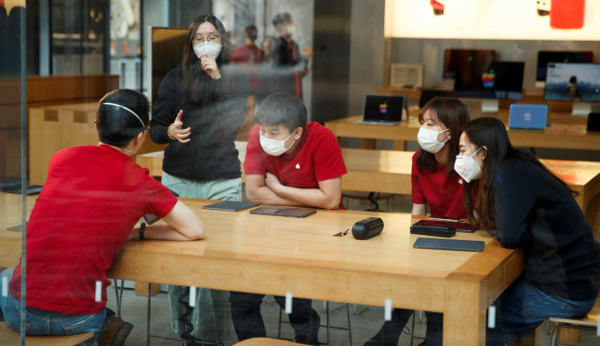The rise of the Age of technology has grown hand-in-hand with the rise of China’s economy. Like the rest of the Western world, Australia has become reliant on China’s place in the global supply chain. Not just imports of completed products, but components that go into mobile phones, television sets and motor vehicles, can bring whole industries to a standstill when they are suddenly unavailable.
There are now more than 70,000 confirmed cases of the coronavirus dubbed COVID-19 by the World Health Organization, and the disease has caused at least 1,700 deaths.
In many provinces across China the government has urged hundreds of millions of workers to stay home to help reduce the spread of the virus. As a result, many factories have stayed closed since the Lunar New Year holiday, halting the production of goods and parts destined for countries around the world, including Australia. For products that are still being manufactured in China, new enhanced screening measures at all Chinese border crossings are likely to cause further delays.
Globalised supply chains and just-in-time manufacturing mean many seemingly unrelated products are vulnerable to pauses in the flow of goods from China. The sectors hit hardest appear to be high-tech electronics, pharmaceuticals and the automotive industry. 90% of all Australia’s merchandise imports are from China, and half of those are engineering products such as office and telecommunications equipment.
China is Australia’s largest trading partner for both imports and exports. Our imports from China were valued at A$85.9 billion in 2018. The biggest product categories were electronics and electrical equipment, making up A$19.8 billion, and machinery, which accounts for another A$15.7 billion.  Exports to China make up 38% of the Australian export market, and the COVID-19 virus has reduced demand for many good and services.
It is possible that some multinational companies will have to diversify their supply chains and pull production out of China. With nearly 85% of the core components of many medicines concentrated in China, which could compromise the global supply of pharmaceuticals, that is probably something everyone in the West should be considering.
Product shortages could soon be visible on retailers’ shelves, with the major electronics stores expected to experience significant disruption to their supply of computers, televisions and smartphones. When shortages like this occur, it can lead to panic buying and stockpiling.
This is obviously a worry for many organisations, but could also be a period of new opportunity for others, as the world comes to terms with this latest global health crisis. A supply chain that is agile enough to react quicker than its competitors, or having a more robust risk management plan, might find itself able to gain greater market share as a result of this crisis.
In addition to the well-publicised impact on airlines, universities and tourism, Australian construction companies are warning clients of upcoming project delays as a result of forecast disruptions in materials sourced from China. Aurizon, Australia’s largest rail operator, has said COVID-19 will delay the arrival of 66 new rail wagons being made in Wuhan, the city at the epicentre of the outbreak.
As licensed Customs Brokers and International Freight Forwarders, Colless Young offers you correct, professional advice on all your imports and exports, including information on shipping, transport and biosecurity regulations. We are based in Brisbane and handle cargo through all major Australian ports.

